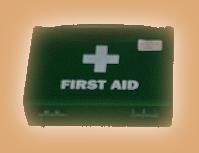Staying Healthy
About Us
Safariing
Travelling
Accommodation
Equipment & Gadgets
Souvenirs
Clothing
Safari Activities
Coastal Activities
Security
Health
Where
When
Experiences
Slideshows
Evolution
Contacts
Site Map
Sub Site
General Health Advice |
||
Due to the conditions and state of the roads you do have to be prepared for most eventualities. It is fair to say you must generally be in good health and must be able bodied for a normal safari. Those with disabilities should seek medical advice about the suitability of a safari and/or search out specialist agencies catering for your specific disabilities. |
||
Dehydration |
||
The best advice overall with regard to health is to keep your water intake up - but don’t drink the local water even in the best hotels! Use bottled water, which is provided in your rooms in most of the lodges - even to clean your teeth! |
||
 |
Even in covered safari buses you will need sun hats and high factor sunscreen - if not total sun block. Some friends we made on one holiday took a short safari and sat on top of the Land Rover. The girl came back with severe sunburn and was warned she could never sun-bathe again due to risk of skin cancer! |
|
Stomach Upsets |
||
In many cases you will be eating unusual food (if you're the type to bring your own food with you, what are you doing in East Africa - leave it to those that appreciate its wonders) and I must say you’ll be an unusual traveller if you don’t experience one bout of Delhi-belly during your safari. So keep the Imodium handy! (On our first safari one girl was planning to steal a hotel towel to make a nappy for her husband – luckily the thought frightened him so much he recovered enough to make it to the next stop without mishap). |
 |
|
Medical Kit |
||
 |
We now keep a travel medical bag stocked up which was prepared by our local surgery especially for the more adventurous travellers. (One couple we came across planned so well they visited their local doctor who prepared a range of drugs for them and taught them how to use the syringe. He couldn’t wait to test his new skills on me when I was bitten by a small scorpion – I declined his offer when the camp supervisor advised it wasn’t deadly and would simply sting for 6 hours, which it did). |
|
Sleeping |
||
Depending on what you wish to experience, night-time can be quite daunting. Even in the lodges you’ll be aware of strange noises and they all sound as if they’re just outside. You may welcome the close experience of the wildlife or end up having a sleepless night full of nightmares. If you are of a nervous disposition you may need some sleeping tablets or ear-plugs (also helps with your partner's snoring - especially if they've had too much to drink at the bar) to ensure you get the most from your safari. A single bad night’s sleep could drain your energy preventing you getting the most for the rest of the trip. |
 |
|
Insects |
||
 |
Finally to insects. You’ll come across many insects on safari. The best way to deal with them is to stop them biting you in the first place. So long sleeved clothing and jeans are best worn in the evening, with lashings of insect repellant on the ankles, wrists and neck. Don't forget to regularly check for ticks if walking in long grass. I followed all manner of 'remedies', such as tweasers etc before I was advised to smoother it in vaseline and wait for it to drop off. It did a couple of days later - shorter than my recovery from the blister caused by the cigarette burn! |
|